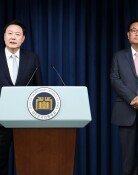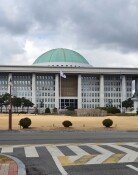Finding accurate incomes should come before health insurance reform
Finding accurate incomes should come before health insurance reform
Posted January. 24, 2017 07:06,
Updated January. 24, 2017 07:15
The Health and Welfare Ministry announced its national health insurance reform plan on Monday. According to the ministry, it will seek to reshuffle national health insurance premiums in three phases over a period of six years from next year, aiming to lower the premiums charged on subscribers based on their residency and increasing the premiums charged on high-income salaried workers and subscribers’ dependents. As a result, the insurance premiums paid by 6.06 million households, or 80 percent of subscribers based on residency, will likely decline, while the premiums paid by 260,000 households of subscribers based on their employment and by 470,000 households of current dependents of subscribers will likely increase.
The government has just reached a conclusion on the national health insurance issue, which has been under controversy since 2012, probably because it judges now is the right timing to reform the insurance, given that easing inequity in Korean society has become a pressing national agenda. When a mother and two daughters committed suicide in February 2014, they were facing extreme poverty, but the system of assessed incomes that construed the troubled family as earning some income, required the family to pay 48,000 won (41 U.S. dollars) in health insurance premiums per month. Many people earning high incomes including pensions other than salaries are also currently registered as dependents of employment-based subscribers and get a free ride in the public insurance program, which has caused anger among the public.
However, the plan suggesting that national insurance premiums will be reshuffled through the administration after the next, not through the next government, is no different from a long-term task rather than reform per se. We doubt whether the plan will overcome controversy that could flare up in the course of the presidential elections and general elections. The government estimated that reform of national insurance premiums will cost more than 5 trillion won (4.27 billion dollars) in state budget, but this may not be the entire cost involved. The government has estimated the amount of state budget to be injected by taking into account early adaptation expenses, including six-year exemption of premium hikes levied on households that pay extra premiums due to an increase in the minimum insurance premiums, but if populism in the political circle adds to the burden, the actual amount of injection from the state budget can snowball.
The centerpiece of health insurance reform is to replace the premium levy system that collectively reflects personal wealth, automobiles owned by subscribers, and income levels at present with an income-centered levy system, but the proposed method to figure out the accurate income levels seems to be sloppy and ambiguous at best. With the accurate incomes of 4 million households, or 53 percent of 7.57 million residency-based subscribers, yet to be figured out, we doubt whether the government will be able to implement the reform properly. Such a uninformed reform will only end up further distorting wealth redistribution structure.
The rate of calculated incomes is an agenda for national budget reform, which entails tax probes and taxation systems. While figuring out incomes for which taxes are evaded by utilizing data of 180 billion cases contained in the National Tax Information System, the government should first detect concurrently leaked incomes that evade the National Tax Service’s radar screens by changing the semi-taxation system and other loopholes as well. However urgent the reform of the national health insurance system is, Korea cannot afford to take a sloppy shortcut measure to address the issue.
Headline News
- Med professors announce intention to leave hospitals starting Thursday
- Bridge honoring Sgt. Moon Jae-sik unveiled in Pennsylvania
- Chief of Staff Chung tells presidential secretaries to stay away from politics
- US FTC bans noncompete agreements
- N. Korea launches cyberattacks on S. Korea's defense companies







